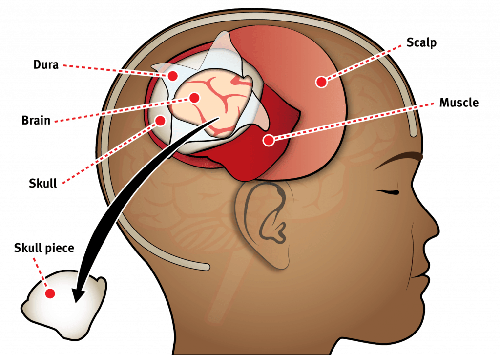Craniotomy & excision of Tumor
India
-
Our Price USD 6840
-
Hospital Price USD 7600
-
You Save : USD 760
Booking Amount: USD 684. Pay Remaining 90% at the hospital.
Book NowAdditional Credit
Among the important extras we offer as part of the Additional Credit are the following:
-
Site Tourism For The Patient & Attendant
-
Airport Pick & Drop Service
-
Ambulance service at airport
-
Priority appointments with The Doctor
-
Cancel Easily Anytime with Full Refund
-
Room Upgradation
-
Free Online Doctor Consultation Valued at USD 20
-
Free hotel Stay for 5 to 7 days Accordingly
-
Welcome Kit at Arrival
-
Interpreter
-
Medical Visa Assistance
What is Included?
- Doctor consultation charges
- Lab tests and diagnostic charges
- Room charges inside hospital during the procedure
- Surgeon Fee
- Cost of implant
- Nursing charges
- Hospital surgery suite charges
- Anesthesia charges
- Routine medicines and routine consumables (bandages, dressings etc.)
- Food and Beverages inside hospital stay for patient and one attendant.
What is not Included?
- Extra Radiology Investigations
- Healthcare Professionals Charges of other consultations.
- Other Requested Services such as Laundry etc.
- Additional Pharmaceutical Products and Medicines After Discharge from Hospital.
- Management of Conditions Unrelated to Procedures or Pre-Existing.
- The cost of any additional implants will be in addition to the package cost.
Package Description
Craniotomy & excision of Tumor:
During a tumour excision operation, the surgeon does a craniotomy and then removes the whole tumour (or almost all of it) before restoring the skull and reattaching the skin. The space left after the excision does not create any issues.
Disease Overview:
Aneurysms
An aneurysm arises when the wall of an artery weakens, resulting in an unusually large bulge.
Blood is carried from the heart to the rest of the body by arteries, while veins return blood to the heart and lungs through veins. This bulge has the potential to burst, resulting in internal haemorrhage. Aneurysms can occur in any area of the body, however they're most prevalent in the:
Brain. Cerebral aneurysms are a kind of aneurysm that occurs in the brain. These most commonly occur in the brain's deep blood arteries. They may also show no signs or symptoms. You may be completely unaware that you have an aneurysm. Cerebral aneurysms afflict 3 to 5 percent of persons at some point in their lives.
Aorta. Thoracic aortic aneurysms are aneurysms that form in the chest cavity. The most prevalent kind is abdominal aortic aneurysms. Arterial damage can affect both the chest and the belly in rare circumstances.
The aorta is the body's major blood artery. It starts in the heart's left ventricle and goes down the belly before splitting into two legs. Arterial aneurysms commonly occur in the aorta.
The following are some of the most prevalent places where an aneurysm might occur:
- intestines
- spleen
- below knees
- legs
Disease Signs and Symptoms:
The symptoms of an aneurysm differ depending on the kind and location. It's vital to understand that aneurysms in the body or brain usually don't cause any symptoms until they burst.
Symptoms of an aneurysm rupture
Swelling and discomfort are common symptoms of aneurysms that form near the body's surface. It's also possible that a big mass will form. The symptoms of a burst aneurysm differ depending on where it is located.
Aneurysm of the brain
A sudden and intense headache is the first symptom of a burst aneurysm in the brain. Other signs and symptoms might include:
Double vision, sensitivity to light, nausea and vomiting, and loss of consciousness are examples of visual issues.
Aneurysm of the aorta
An aortic aneurysm can cause a variety of symptoms.
Whether it happens in the chest or the abdomen is determined by Trusted Source.
Symptoms of a thoracic aortic aneurysm rupture include:
- chest pain that is immediate and intense
- back pain that comes on suddenly
- Blood pressure has dropped significantly.
- A feeling of numbness in the limbs
- A ruptured abdominal aortic aneurysm might produce the following symptoms:
- Sudden and severe abdominal or lower back discomfort
- heartbeats per minute
- lightheadedness or dizziness
- Breathing problems
- a chilly sweat
Disease Causes:
Although the specific aetiology of an aneurysm is unknown, some variables play a role in its development.
Damaged tissue in the arteries, for example, can have a role. The arteries can be harmed by blockages such as fatty deposits. To push blood past the fatty accumulation, the heart may have to pump more forcefully than required. Increased pressure causes additional stress on the arteries, which can lead to artery damage.
Atherosclerosis is a disease that affects the arteries.
Aneurysms can also be caused by atherosclerotic disease. Plaque builds up in the arteries of people with atherosclerotic disease. Plaque is a hard material made up of cholesterol, fat, and other ingredients that clogs arteries and restricts blood flow.
Blood pressure that is too high
Aneurysms can also be caused by high blood pressure. The amount of pressure your blood exerts on your artery walls is a measure of its force as it passes through your blood arteries. The blood vessels may grow or weaken if the pressure rises over a typical level.
A blood pressure reading of 120/80 mm Hg, or millimetres of mercury, is considered normal for an adult.
Blood pressure that is much higher increases the risk of heart, blood vessel, and circulation disorders. Higher-than-normal blood pressure, on the other hand, does not always mean you're at risk for an aneurysm.
Other potential dangers
Specific risk factors influence the sort of aneurysm that might impact you. Males are more prone than females to suffer from aneurysms. People above the age of 65 are also at a higher risk. Other aspects to consider are:
a high-fat, high-cholesterol diet
A family history of heart diseases, such as heart disease and heart attack, as well as smoking, obesity, and pregnancy, may raise your chance of developing a splenic aneurysm.
Disease Diagnosis:
The diagnostic methods used to discover arterial damage are frequently dependent on the problem's location.
The majority of cerebral aneurysms
When brain imaging is used to check for other problems, like as a concussion, Trusted Source are frequently discovered by chance. A specialist, such as a cardiothoracic or vascular surgeon, may be recommended by your doctor.
CT scans and ultrasounds are two typical imaging techniques used to identify or locate blood vessel abnormalities. CT scans analyse the interior of your body using X-rays. This enables your doctor to examine the state of your blood arteries, as well as any blockages, bulges, or weak areas that may exist inside them.
Disease Treatment:
Treatment is usually determined by the aneurysm's location and kind.
An endovascular stent graft, for example, may be required to repair a weakening region of a vessel in your chest or belly. Because it includes mending and fortifying damaged blood arteries, this less invasive method may be preferred over typical open surgery. Infection, scarring, and other issues are also reduced as a result of the operation.
Medications for high blood pressure and excessive cholesterol are examples of other therapies. Blood pressure medications such as beta-blockers may also be administered. It's possible that lowering your blood pressure will prevent your aneurysm from rupturing.
An aneurysm can be prevented by eating a nutrient-dense diet that includes enough of fruits, whole grains, and vegetables. Protein sources that are low in saturated fat and cholesterol include meat and poultry. Dairy products that are low in fat are also healthy.
Regular exercise, particularly cardio, can help to promote good blood circulation and blood flow via the heart, arteries, and other blood vessels.
If you smoke tobacco products, you should think about stopping. Eliminating cigarettes from your diet can help you avoid an aneurysm. Quitting smoking can be difficult, but a healthcare expert can assist you in developing a quit plan that works for you and link you with other helpful resources.
Another method to be proactive in preventing an aneurysm is to schedule yearly checks. It's also a means of expressing yourself.
Information related to Treatment
Package Details
Days in Hospital
7 Days
Days in Hotel
*
14 Days
Room Type
Private
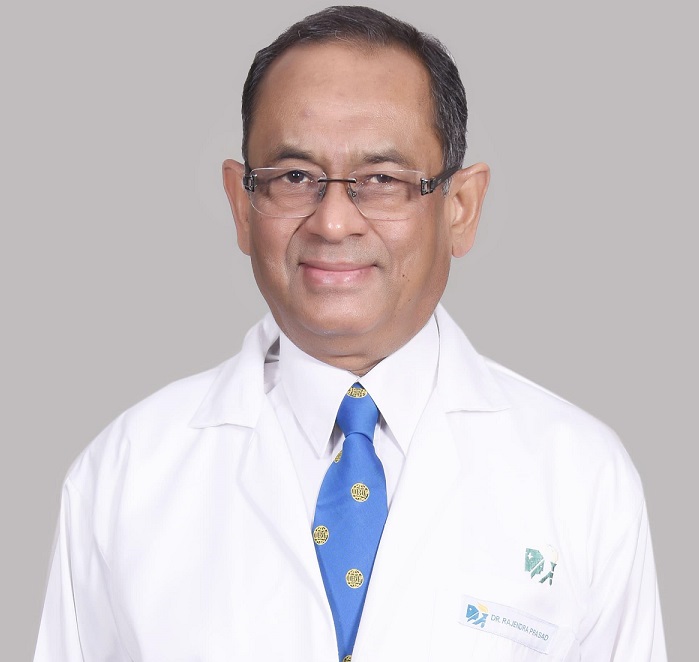
Treating Doctor
Dr. Rajender Prasad
Orthopedist & Spine Surgeon- Ankylosis Spondylitis, Brachial plexus repair, Spinal Tumor, Back pain, Spinal Deformity, Carpal Tunnel Syndrome, Cervical Canal Stenosis, Cervical Disc Prolapse, Congenital Spine Abnormality, Facet Joint & Sacro-Iliac, Lumbar Canal Stenosis, Lumbar Disc Herniation, Sciatica, Spinal Infection, Spinal Injury
Indraprastha Apollo Hospitals, New Delhi New Delhi, India
38 Years of Experience
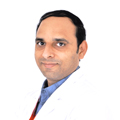
Treating Doctor
Dr. Vipin Tyagi
Orthopedist- Spinal Deformity correction, Correction of deformities, Spasticity, Joint Replacement Surgery, Wrist Problem, Reconstruction and Rehabilitation, Disc Slip, External Fixator, Reconstruction and Bone Lengthening, Cruciate Ligament Recosntruction
Medanta-The Medicity, Gurgaon Gurgaon, India
35 Years of Experience
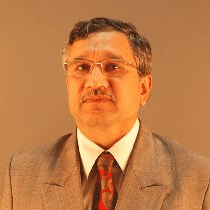
Treating Doctor
Dr. BHAVE ARVIND
Orthopedist & Spine Surgeon- Slip Disc Specialist, Endoscopic Surgery, Minimally invasive spine surgery (MIS), Spine fracture/ trauma, Spinal pain & Spinal Stenosis, Degenerative Spine
Deenanath Mangeshker Hospital and research centre, Pune Pune, India
31 Years of Experience
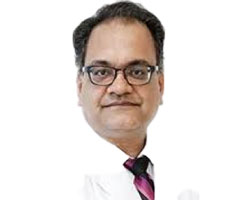
Treating Doctor
Dr. Vineesh Mathur
Spine Surgeon- Spine Surgery, Spine Surgery, Spine Surgery, Spine Surgery, Spine Surgery, Spine Surgery, Spinal Deformity, Spine Tumors
Medanta-The Medicity, Gurgaon Gurgaon, India
31 Years of Experience
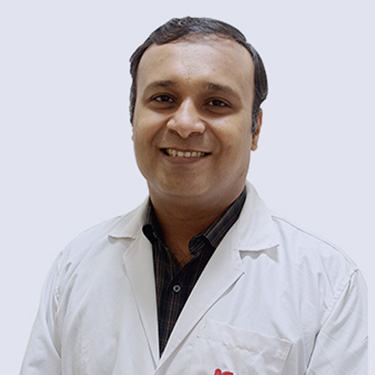
Treating Doctor
Dr. Hrutvij Bhatt
Orthopedist & Spine Surgeon- Spine Surgery, Spine Surgery, Spine Surgery, Minimally Invasive Spine Surgery, Disc replacement (Artifical Disc Placements), Deformity correction, Sports Injuries Surgery, Spine Surgery, Herniated Disc, Cervical Spondylitis, Spine Surgery, Minimally Invasive Spine Surgery, Spine Surgery, Cervical Disc Prolapse, Herniated Disc, Cervical Spondylitis
KD Hospitals, Ahmedabad Ahmedabad, India
10 Years of Experience
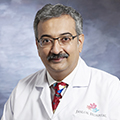
Treating Doctor
Dr. Devesh Dholakia
Orthopaedic Surgeon,Orthopaedic Surgeon,Orthopedist & Spine Surgeon- Endoscopic Surgery, Endoscopic Surgery, MIS decompression and TLIF for the spine, Cervical Disc Replacement, Deformity correction, Minimally Invasive Orthopaedic Surgeries, Osteoporosis, Revision Spine and Joint Replacement Surgeries, Scoliosis and Kyphosis Deformity Correction Surgeries, Sciatica, Osteoporosis
Jaslok Hospital & Research Centre, Mumbai Mumbai, India
31 Years of Experience
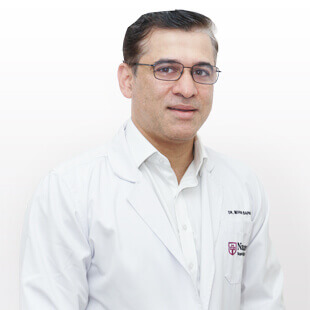
Treating Doctor
Dr. Mihir Bapat
Orthopedist & Spine Surgeon- Spinal Cord Injury, Kyphoplasty, Vertebroplasty, Spinal Deformity correction, Scoliosis, Neck and Spine Biopsy, Wrist Problem, Disc Slip, Column traumatology, Spinal Surgery Disorders, Herniated Disc, Spinal Injury, Herniated Disc, Neck and Spine Biopsy, Vertebroplasty, Scoliosis
Nanavati Max Super Speciality Hospital, Mumbai Mumbai, India
24 Years of Experience
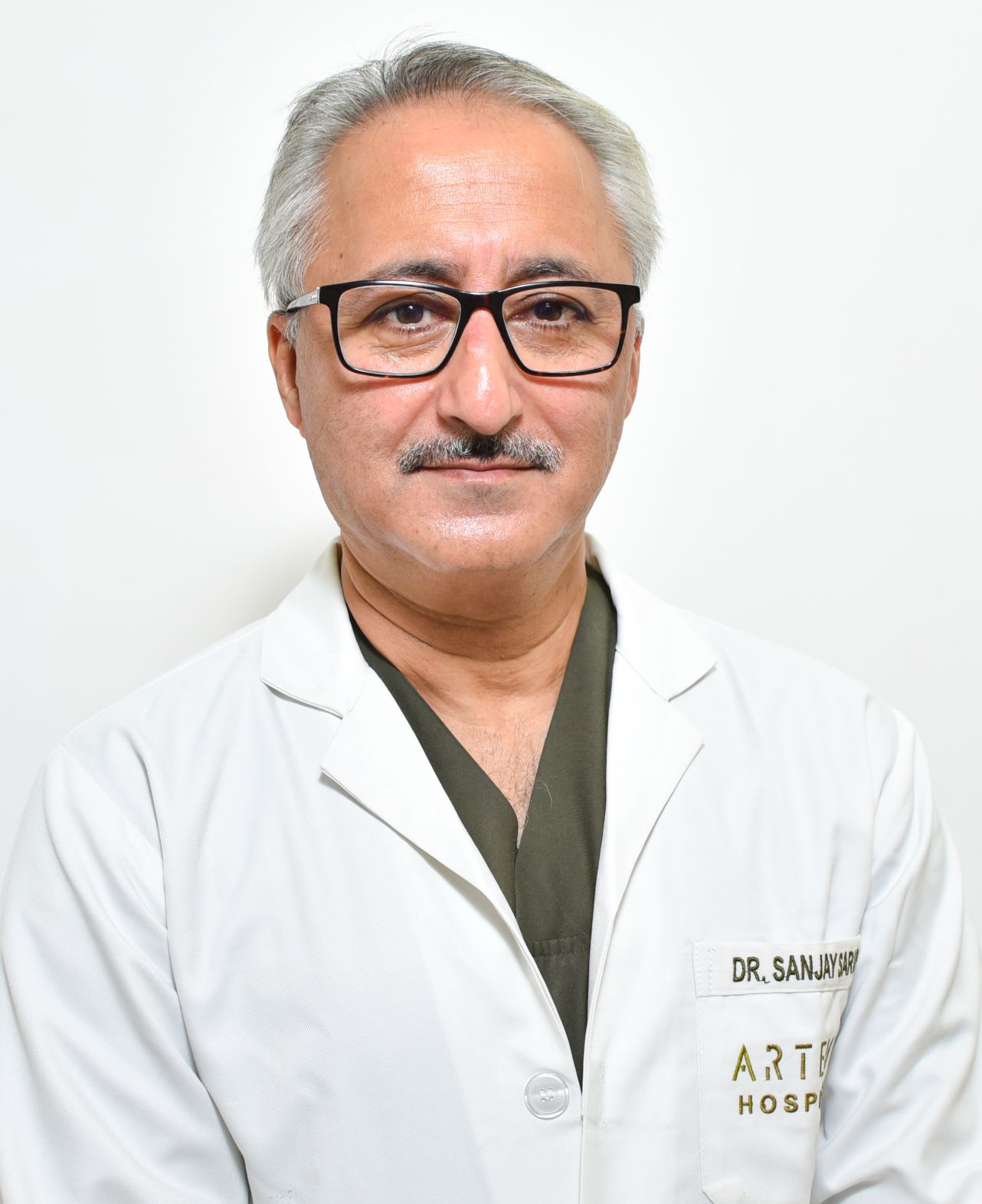
Treating Doctor
Dr. Sanjay Sarup
Orthopedist & Spine Surgeon- Rheumatoid Arthritis, Rheumatoid Arthritis, Cruciate Ligament Recosntruction, Avascular Necrosis of Hip Joint, Osteoarthritis (Most Common), Hip Fracture or Hip Dysplasia, Ankle Fracture, Deformed Knees, Meniscus Tear, Torn Anterior, Osteonecrosis, Hip Osteoarthritis, Knee Pain Treatment, Rheumatoid Arthritis, Osteoarthritis (Most Common), Injury or Fracture of the Hip Joint, Ankle Fracture, Ankle Arthritis, Knee Injury, Erb's Palsy, Bone Tumor in the Hip Joint, Brachial Plexus Avulsion, Carpal Tunnel Syndrome, Avascular Necrosis of Hip Joint, Brachial Plexus Rupture, Major Fractures, Shoulder Injury, Knee Osteoarthritis, Torn Rotator Cuff, Knee Pain Treatment
Artemis Hospitals Gurgaon, India
29 Years of Experience
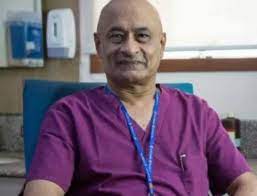
Treating Doctor
Dr. Rajagopalan Krishnan
Orthopedist & Spine Surgeon- Spinal Injuries, Slip Disc Specialist, Foot Drop, Spasticity, Spondylosis, Functional Orthopedics, Neck and Spine Biopsy, Spasticity, Lower Extremity Wound Care, Knee Pain Treatment, Spondylosis, Spinal Therapy, Herniated Disc, Spasticity, Skeletal Muscle Therapy, Foot Assessment, Spasticity, Functional Orthopedics, Foot Pressure/Vascular Assessment, Neuropathy Assessment. Spinal Disc Surgery, Spine Mobilization, Lower Extremity Wound Care, Spinal Diseases, Herniated Disc, Neck Pain, Neck and Spine Biopsy, Ankle-Brachial Index, Hand Pain, Spinal Fusion Heat Therapy, Foot Drop Spinal Surgery, Diabetic Foot Check-Up, Spinal Disorders, Disc Prolapse, Spinal Therapy, Knee Pain Treatment, Spondylosis, Foot Drop
Indraprastha Apollo Hospitals, New Delhi New Delhi, India
46 Years of Experience
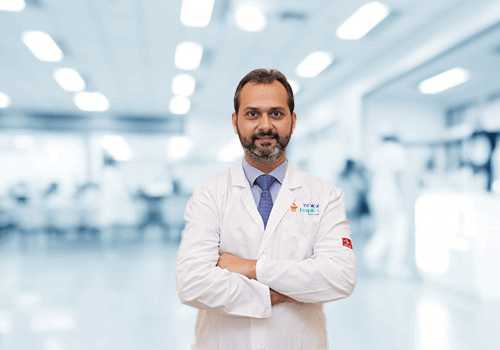
Treating Doctor
Dr. Saurabh Verma
Orthopedist & Spine Surgeon- Minimally Invasive Spine Surgery, Spinal Deformity correction, Spine Traumaq, Degenerative Spine Disorder
Manipal Hospitals New Delhi, India
17 Years of Experience

